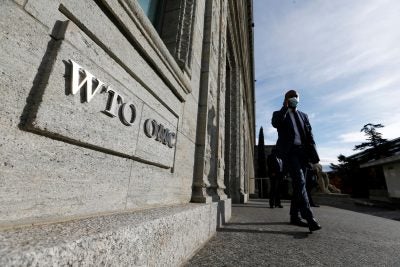During the 26 years since the WTO was founded, the Members added an agreement to provide duty free treatment to information technology goods and duty-free treatment for pharmaceuticals. They concluded a landmark trade facilitation agreement that takes direct aim at reducing the 24% on average cost of moving goods across borders, a cost that is on top of whatever tariffs exist. They inaugurated peer review of trade regimes through the trade policy review mechanism. Their institutional arrangements provided increased transparency with respect to a large number of government measures that affect trade. In a testament to the WTO’s importance, thirty-six countries have joined since its founding including former members of the Soviet bloc and China, and twenty-three countries are now seeking entry, bringing the WTO to near universal applicability.
Why then the current disquiet, the repeated, largely unheeded call by world leaders and trade ministers for reform of the WTO, the growing unease about the durability and even the relevance of this liberal international trading system. What challenges does the WTO face? What is the path forward?
wolff2021-07-02To read the full report from the Peterson Institute for International Economics, please click here.

